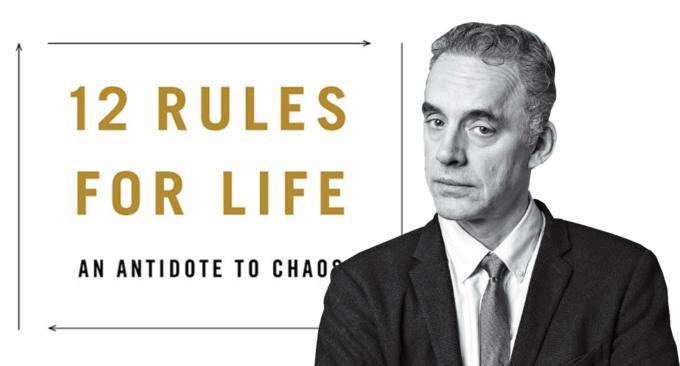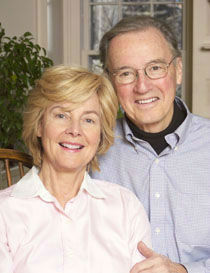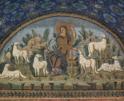
Faith
In his phenomenally successful book, (Jordan) Peterson connects Biblical passages to historic moral and philosophical developments, interpreting them in light of his own knowledge of psychology.

Ryan
It's not news that the media should not be raising our children. Cyber content is not of much help. Nevertheless, sound advice is out there. In addition to priests and parents, a new source has entered the realm of ideas: Jordan B. Peterson.
Peterson has advanced his proverbs on child-rearing and other wisdoms on YouTube, as well as his new book. He has refused to bend to whims of the politically correct thought police. He famously refused to use vague pronouns for transgender people in a BBC interview. That video made him a celebrity.
Brainy and brave, Peterson is a professor of clinical psychology at the University of Toronto. In his professional practice, he has had extensive experience with adolescents, especially boys. In treating boys -- his grave concern -- he has learned a great deal about their fears and frustrations, which he addresses in his new book "12 Rules for Life: An Antidote to Chaos."
The book is not just for teens, though. Peterson promotes an earnest search for truth. This is a book for people who have been mistakenly taught to scorn Christianity and have had to invent their own belief system -- a tall order for most of us. Though not an explicitly Christian book, the Bible is an integral reference of his literary project.
The Western world replaced its ancient morality rooted in Christianity with an inadequately invented value system. As Peterson says, "We cannot invent our own values, because we cannot merely impose what we believe on our souls."
There are ink and breath everywhere in the media swirl, but not much of it is as sound as Peterson's advice. It's not breaking new ground to note that many millions of young people just seem lost. Many are deeply suspicious of organized religion, yet they can't dismiss the need for transcendence in their lives. Despite taking to the streets in various demonstrations of their moral superiority, they are still adolescents and in need of guidance.
Peterson shows how they want answers to the great questions, but are suspicious of authority (Unless it's on Facebook, of course). They want a purpose or a cause, but those ideas remain elusive apart from careerism and a financially secure future. All but the most politically correct are keenly aware that men and women are different, and that while the post-Christian West has allegedly killed God, the secular culture can't seem to replace him with anything better.
Practically speaking, Peterson notes that it is nearly impossible to change the entire world, but you can start with your own space, our own bedroom, a small thing around you. By reforming ourselves, the world changes.
In his phenomenally successful book, Peterson connects Biblical passages to historic moral and philosophical developments, interpreting them in light of his own knowledge of psychology. He defines the human journey from Genesis and innocence in the Garden to modern man in his spiritual growth.
As his many YouTube links attest, he speaks in paragraphs but never fails to let the viewer know the paths of his thinking. Having been told that masculinity is toxic, young men have not been taught a way to live in keeping with their own nature. He invites and urges his audiences, especially young men, to stand tall, face life as a series of challenges.
When Peterson speaks of science, he doesn't allow scientific jingoism any place. He declares religion older and deeper, concerned with ultimate value. As such, it is not in the scientific domain. It's not the territory of empirical description. It is the land of dogma and he argues that dogma is necessary. "What good is a value system that does not provide a stable structure?" He suggests we need a sense of meaning for dealing with the troubles in life. He describes how most modern feel-good systems end badly.
One reason Jordan Peterson is such a hot topic is that he is unafraid to confront sacred cows. One example is his riff on public schools. He advises parents if they hear any of the chants about gender fluidity, micro-aggressions or other fashionable social issues at their schools, take their children out of them! That ruffled a few feathers.
In his deep understanding of western Christianity, Jordan Peterson also revives the archetype of the hero. Remember the recent heroic and tragic story of a police martyr who exchanged himself in a hostage-taking in a dreary supermarket in southwestern France? He was a Catholic convert at age 30, the father of two young children. There are still heroes, and Peterson reminds us that we need their stories.
His book of rules has practical and pithy phrases in the mode of Ben Franklin in his "Book of Virtues." Every generation needs one. Just one example: "Rule 1, Stand up straight with your shoulders back," Another, "Clean your room." Rule 5: "Don't let your children do anything that makes you dislike them because that means other people will dislike them." And on to "Don't bother children when they are skateboarding." The idea here is that children learn from doing dangerous things. Fathers should give their sons and daughters the unshakeable confidence they can do anything they set their minds to. For the rest of us, delayed gratification is discovery of the future.
This multi-media teacher has nuggets for goal-seekers, professionals and married couples. Although he does not primarily deal with marriage therapy, he has insights from his counseling experience. Another of his YouTube talks involves his ideas on art and so on to an array of topics for binge-watching.
While he isn't a Catholic, Jordan Peterson uses Christian history and biblical narratives as though he might become one.
- Kevin and Marilyn Ryan, editors of "Why I'm Still a Catholic," worship at St. Lawrence Church in Brookline, Mass.
Recent articles in the Faith & Family section
-
Popular devotions and the liturgyFather Robert M. O’Grady
-
The Fight for Our FaithMaureen Crowley Heil
-
The shepherd's voiceScott Hahn
-
Scripture Reflection for April 21, 2024, Fourth Sunday of EasterJem Sullivan
-
The new Temple: How Easter changes religionDr. R. Jared Staudt


















